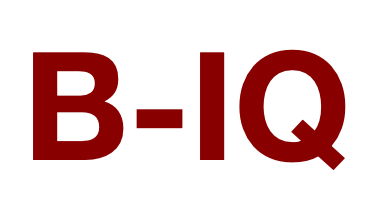If you haven’t read Part 1 of Top Leadership Challenges, hurry up.
This is part II.
There is an inherent theme among all these challenges and potentially others I haven't listed.
An underlying foundation enabling all these challenges. Yes! Enabling these challenges, and sabotaging good leadership.
You can call it Leadership Intelligence, or lack of - I simply call it ”Behavior Intelligence”.
Here is what I have learned and what we have uncovered in our decades of research and development in this field of Leadership. First, let’s see if you agree with these 4 statements:
- Leadership is about leading others. Right? Yes! It’s not management. Management is a different topic, which I cover in my YouTube video ”Leadership Not Before Management“.
- Leading others implies an action of some kind - A Behavior. Agreed? Yes! You can’t lead by doing nothing. Each and every action is a Behavior. Behaving appropriately or inappropriately will always get you the result you deserve.
- When not an action, it then becomes listening, observing and processing. Although these cannot be physically observed, because they are neurological, they are still a Behavior. Silence is a behavior. Observing is another behavior. Processing: Whether conscious or unconscious are also behaviors. Agreed? Yes!
- Interacting to positively motivate and influence in the desired direction. Again a Behavior. True? Again Yes!
Now before we go into the whole Leadership Intelligence and how behavior creates intelligent leaders, let’s go one step further. Let’s judge leadership. (Lol - there is a word you won’t see me use too frivolously).
- How do you measure and qualify or even quantify the effectiveness of a good leader?
- Is it about effectiveness in getting things done, or is it about effectiveness in inspiring others?
- Do most organizations even know how to measure good, great or poor leadership?
- Feedback surveys, and 360s - YUK!
- Subjective performance reviews - again YUK!
No matter how it is done, it can only be accomplished through observation. Mostly observable behaviors. Yes! As humans, if we cannot observe it we cannot judge (there is that horrid word again) it. Even if the observation is purely around statistical data. It is still observed.

Let's analyze these a little further. Two key outcomes that define Leadership are “Getting Things Done - by others” and “Inspiring and Motivating others”. Let’s take a look:
- Leading Others to Get Things Done:
- You may observe how a particular leader communicates and engages with their team which results in the team being motivated to execute promptly. And we call this effective leadership to get things done.
Is this an observable behavior? Yes It is!
- Leadership that Inspires and Motivates:
- You might observe the team's excitement or (the current buzz word) engagement. By this you deduce that there is effective leadership that is inspiring this level of passion and commitment by the team.
Is this an observable behavior? Yes It is!
So to be a good or even a great leader requires acting out in a way that those who follow are inspired and motivated to get stuff done. In fact in my book (not yet published - wait for it), Leadership is about getting people to not only follow but to Exceed Expectations and Stay - a topic for another day.

We've heard from many world leaders how "Having a great team" is your greatest asset. I believe this is missing an important element "Having a great leader" is what makes a great team a valuable asset. Jack Welch, Richard Branson, Google brothers, Bill Gates, and a long list of people will tell you “You need to get good people, then you need to figure out how to keep them”.
You can get the best player on your team, but if you suck as a leader (sorry), they will not be inspired to do anything for you or despite you. Yes, despite you. Great team members will bust their ass to do what’s right despite their poor leadership. It’s unfortunate, but it happens all too often. As a result, they will likely either burn out, get frustrated, or leave. Maybe all the above.
A good leader finds the best in even the worst player, and gets them to exceed expectations. They can take an average player and inspire them to do their very best. A good leader sees the potential in everyone and adapts to engage them accordingly. This is Behavior Intelligence.
A good leader does not implement a paintbrush approach. In other words; Doesn't treat everyone the same. A good leader knows and recognizes that each person on the team is unique. Each one is motivated according to their experience, capabilities, triggers and aspirations. This is Leadership Intelligence - a level of Behavior Intelligence specifically for leaders.
Over the coming weeks I will share more about each one of the Challenges listed in my previous blog “Top Leadership Challenges you Should Know About” and how these factor into Behavior Intelligence for Leaders. How you too can become intelligent about your own behaviors, and those of others. How each action we take impacts others, and each person is impacted according to their own programming. Their own traits, triggers and biases.
BE SURE TO DO THE QUIZ. Takes less than 1 minute.
This will help me focus the priorities based on your selection.
NEXT: How to solve top leadership challenges. One at a time.
Be sure to subscribe to our regular updates.
Help me collect more data so my next article is even more relevant to your top priorities as a leader.
Quiz takes less than a minute.
